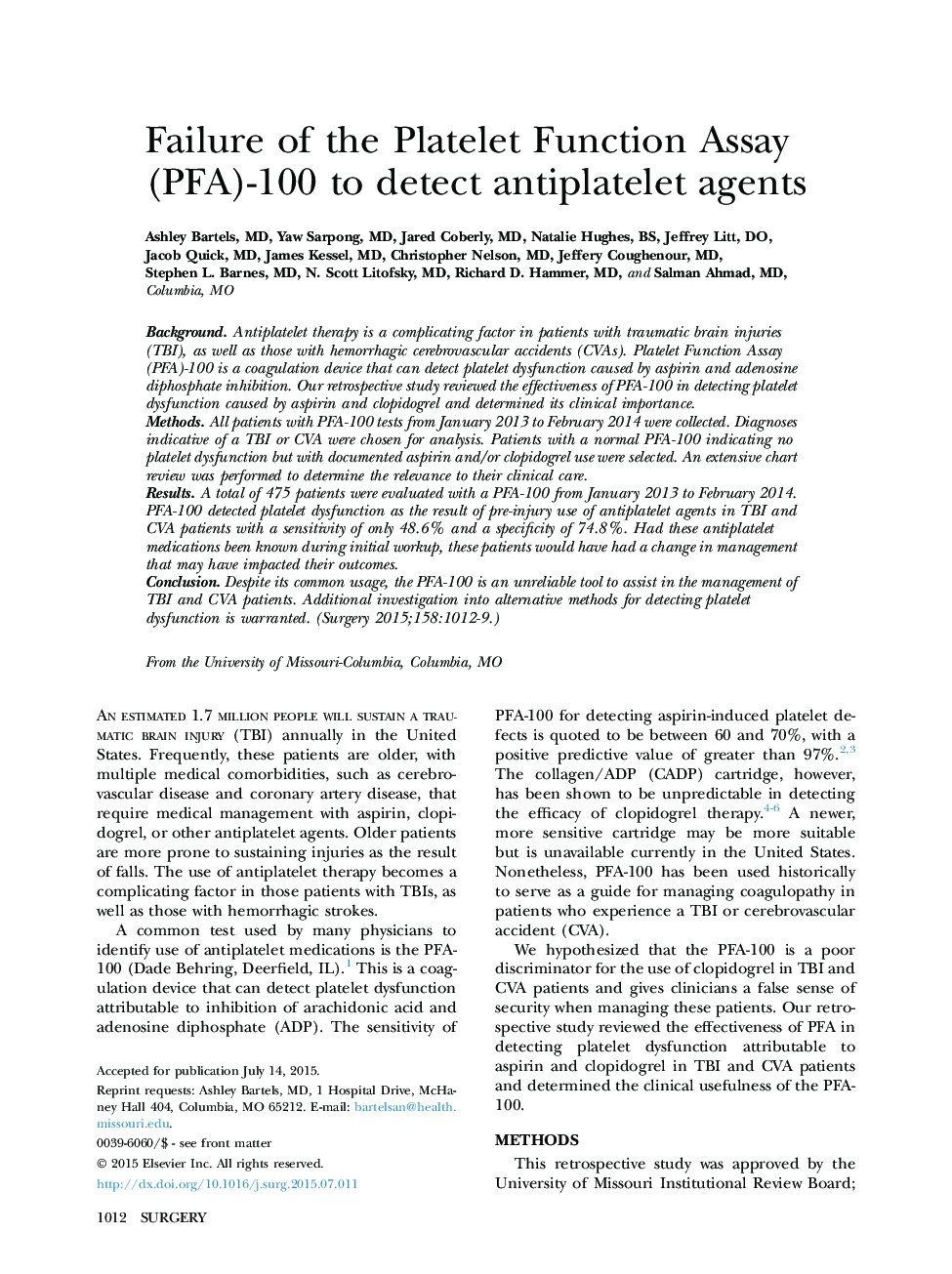| Article ID | Journal | Published Year | Pages | File Type |
|---|---|---|---|---|
| 4306959 | Surgery | 2015 | 8 Pages |
BackgroundAntiplatelet therapy is a complicating factor in patients with traumatic brain injuries (TBI), as well as those with hemorrhagic cerebrovascular accidents (CVAs). Platelet Function Assay (PFA)-100 is a coagulation device that can detect platelet dysfunction caused by aspirin and adenosine diphosphate inhibition. Our retrospective study reviewed the effectiveness of PFA-100 in detecting platelet dysfunction caused by aspirin and clopidogrel and determined its clinical importance.MethodsAll patients with PFA-100 tests from January 2013 to February 2014 were collected. Diagnoses indicative of a TBI or CVA were chosen for analysis. Patients with a normal PFA-100 indicating no platelet dysfunction but with documented aspirin and/or clopidogrel use were selected. An extensive chart review was performed to determine the relevance to their clinical care.ResultsA total of 475 patients were evaluated with a PFA-100 from January 2013 to February 2014. PFA-100 detected platelet dysfunction as the result of pre-injury use of antiplatelet agents in TBI and CVA patients with a sensitivity of only 48.6% and a specificity of 74.8%. Had these antiplatelet medications been known during initial workup, these patients would have had a change in management that may have impacted their outcomes.ConclusionDespite its common usage, the PFA-100 is an unreliable tool to assist in the management of TBI and CVA patients. Additional investigation into alternative methods for detecting platelet dysfunction is warranted.
